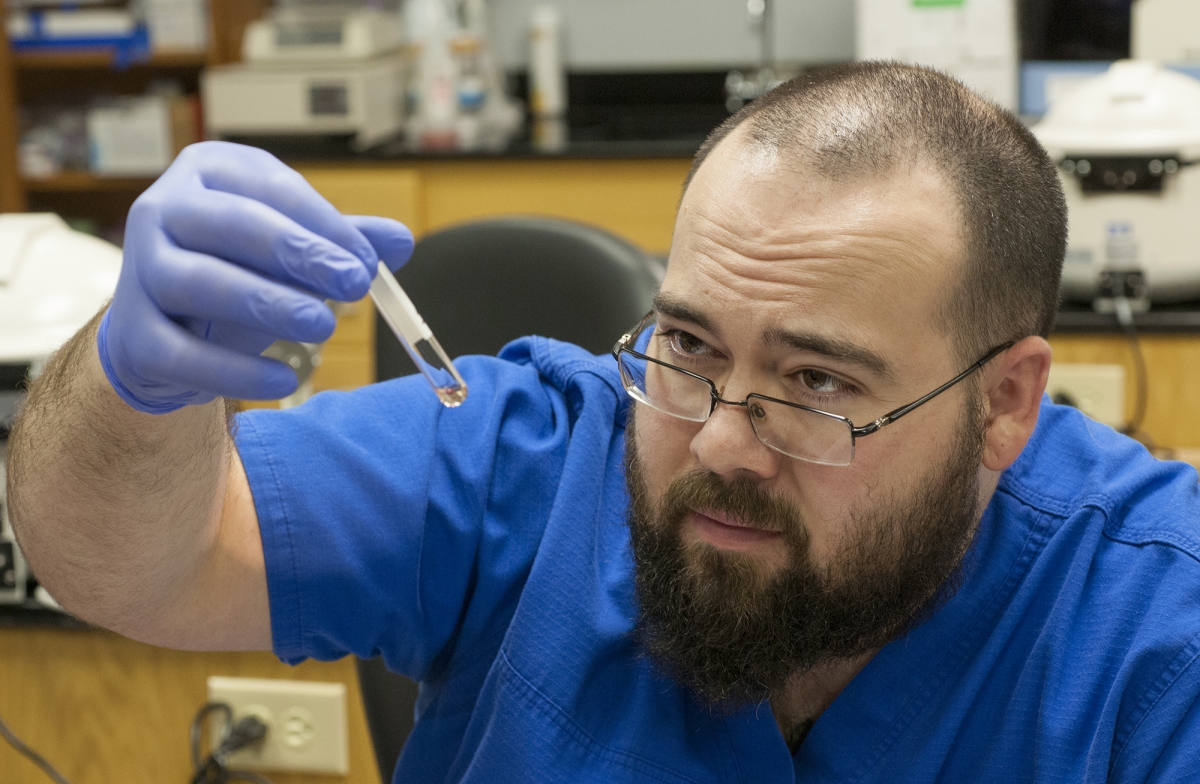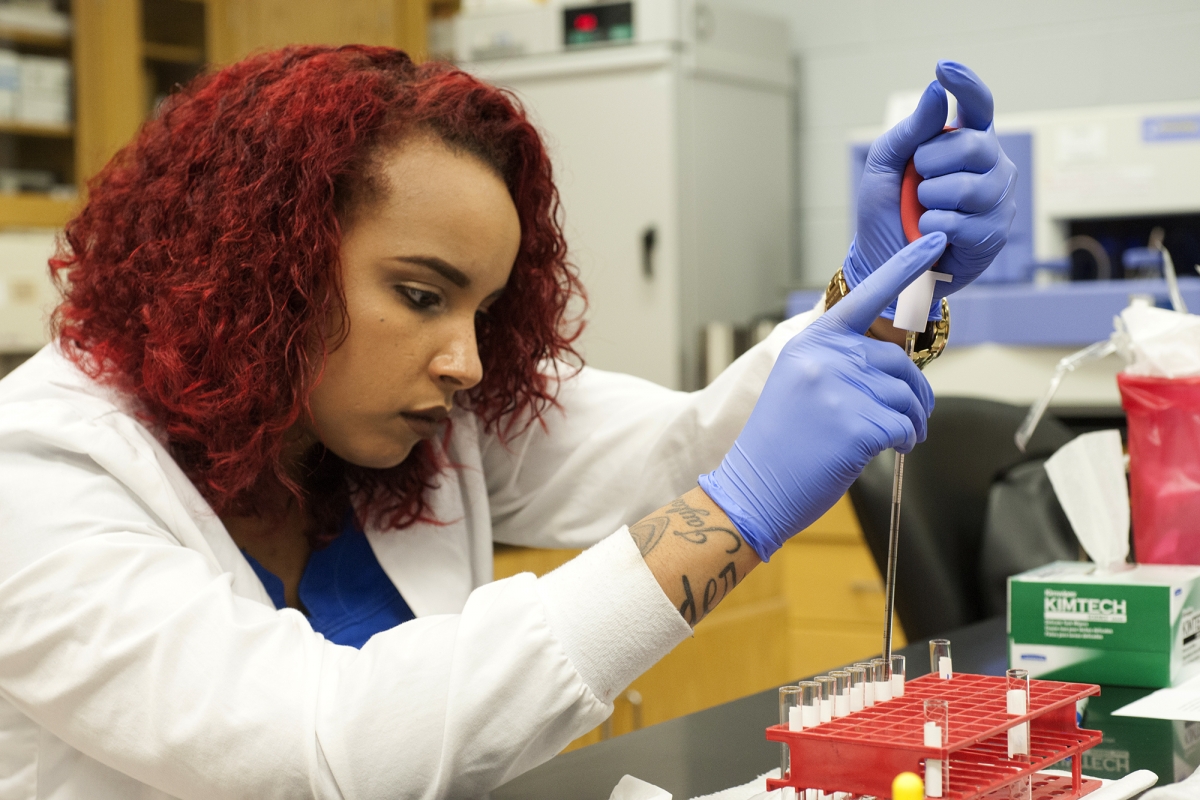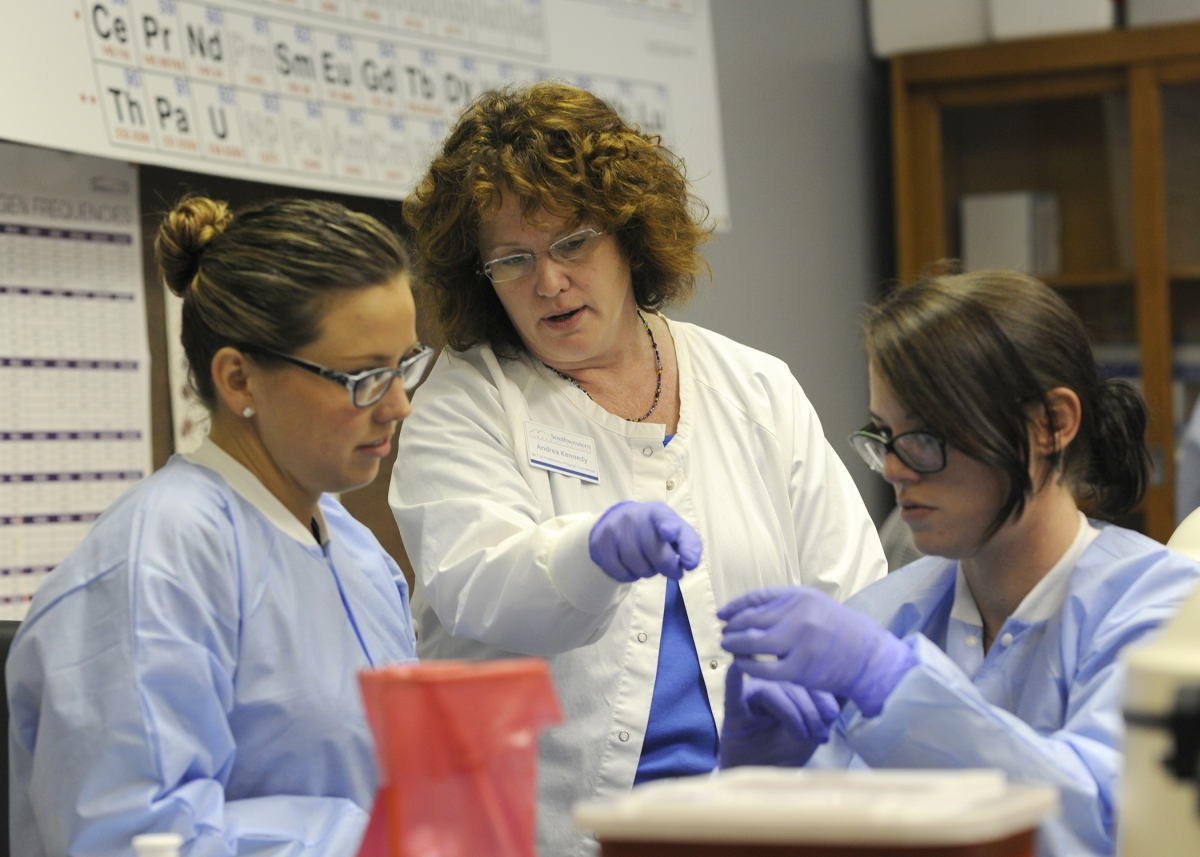 |
| Christopher Barnes of Franklin, an SCC student, conducts a test recently at the college’s Jackson Campus in Sylva. |
Roughly 10 years ago, Ginger A. Baker was overseeing emergency room lab tests at a hospital in Washington, D.C., when she noticed some disturbing numbers on a complete blood count exam.
A female patient in her mid-20s had some unusual results in a histogram, so Baker did some quick research and realized the patient was likely experiencing a pulmonary embolism.
A CT (Computed Tomography) scan confirmed Baker’s theory, and the resulting care that patient received very likely saved her life.
Baker, who graduated from Southwestern Community College’s Medical Laboratory Technology program in 1996, said it’s just one among many examples that show how alert and efficient lab technicians make a major difference in patient care.
“What I love about the field is that there’s consistency, but you’re not doing the exact same thing every day,” Baker said. “You make a dramatic difference in patient care. You may not be in direct contact with the patient like a nurse, but you’re having an equal impact with what you’re doing behind the scenes.”
Dr. Brad McAbee, medical director at Harris Regional Hospital in Sylva, agreed: “Lab techs are the centerpiece of how an ER runs efficiently. Without them, everything would grind to a halt.”
That’s why a recent trend is particularly troubling. Baker and Andrea Kennedy, who coordinates Southwestern’s MLT program, said there there’s a significant shortage of lab technicians throughout the United States.
According to Baker, who’s now self-employed as an operational consultant in laboratory medicine, 60 percent of the nation’s MLT associate degree programs have closed down – and 70 percent of the nation’s lab techs are 10 years from retirement.
“We are at critical mass,” said Baker, who’s performed lab testing in 48 states and now consults across the country as well as in Great Britain and Spain. “A quality program like SCC’s provides students with an educational path toward an extremely stable position at virtually any organization anywhere.
 |
| ABOVE: Alexus Montgomery, an SCC student from Murphy, works on a project recently in the Medical Laboratory Technology lab at SCC's Jackson Campus in Sylva. BELOW: SCC instructor Andrea Kennedy works with students in the lab. |
 |
“There is a very high demand nationwide,” she added. “Most of the people filling those jobs right now are coming from outside the U.S. just because we don’t have enough programs like SCC’s in this country.”
Kennedy, who’s been at SCC since 1993, is eager to reverse that trend.
“I want to restore and invigorate a renewed interest in this profession,” Kennedy said. “Our program offers online courses with local students performing labs on campus and distance learning students performing tests at full-service labs in their respective geographic areas. The average salary for our graduates is $38,000 – and there is more to be earned with further education into a bachelor’s or master’s degree in Medical Laboratory Science or Doctorate in Clinical Laboratory Science degree.”
Medical laboratory professionals provide a number of services, including quality lab test results for the diagnosis and management of disease and results to assist in health maintenance and prevention of disease - improving healthcare outcomes.
They also improve inpatient care and efficiency, plus they reduce unnecessary testing and referrals – lowering healthcare costs.
“It’s actually kind of interesting that right at this point when we’re more focused on healthcare than at any point in our history, we are on the precipice of a historic shortage in one of the most vital healthcare fields around today,” said Mitch Fischer, dean of health sciences at SCC. “I’m convinced that if more people were aware of what Medical Laboratory Technology is all about – and if they knew what they’ll get to do on a daily basis - programs like ours would need to hire more instructors and build more labs to accommodate all the students.”
For more information about SCC’s Medical Laboratory Technology program, contact Kennedy at 828.339.4312 or andrea@southwesterncc.edu.

